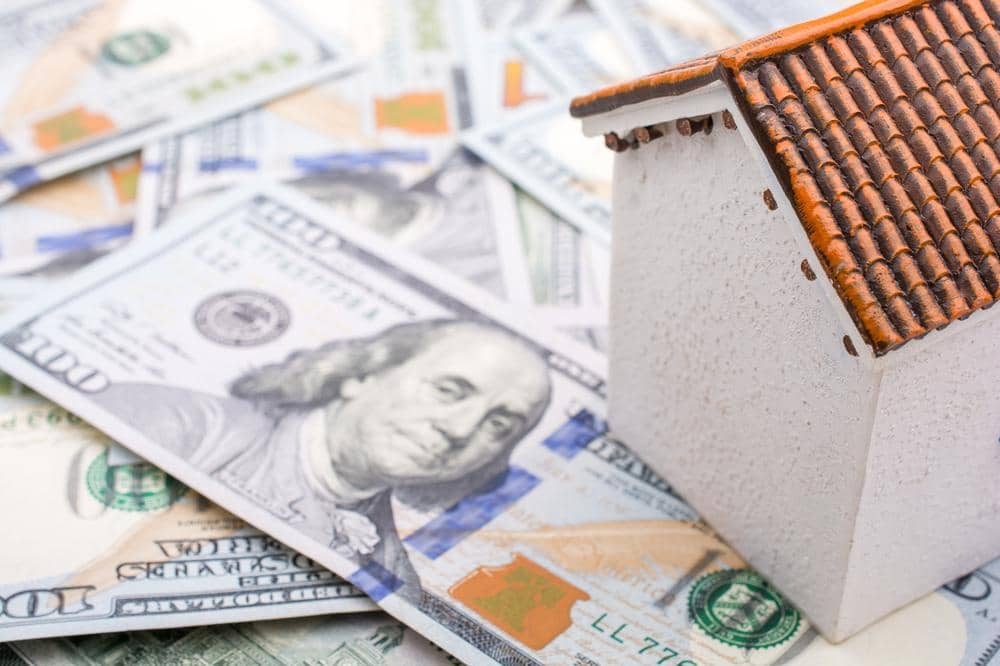Accurately forecasting the Fed’s next move with our fiscal policy is impossible, but we can keep a watchful eye on public statements they put out for the general public. For example, following a speech by Janet Yellen and her colleagues at the Federal Reserve in March, analysts at Time Money expected a rate increase to come in June of this year. So how are interest rates changing, and how does the rise in interest rates impact private lenders and the private lending rental market?
How Are Interest Rates Changing?
Interest rates have risen dramatically. In the final week of January, the average 30-year fixed mortgage reached a 3.5 percent interest rate, the highest rate since the COVID pandemic began. And since that time, rates have continued to rise. The Fed anticipates that short-term rates will continue to rise throughout 2022. These hikes are meant to battle the present inflationary surge, which remains a key goal for the fed. As interest rates continue to increase, the higher rates may discourage people from taking out loans, slowing the economy and reducing inflation. Both potential homeowners and investors must plan for these continuous adjustments regarding investment decisions on property until our economy stabilizes by adjusting their budgets for increased interest rates.
Rising Interest Rates and Real Estate Investments?
Increasing interest rates impact every investor differently based on their unique approach. For example, investors who plan to sell might expect high profits, but those who intend to buy will almost certainly pay more. Furthermore, there are additional considerations regarding where to invest money for those selling investment properties.
The price of homes is not anticipated to go down in 2022; however, growth is expended to slow down as the previous year’s market begins to cool. Prices are expected to rise by 7.5 percent this year, implying that investors wishing to acquire new houses will continue to face high prices. As rates rise, the cost to borrow money will increase and can potentially raise monthly loan payments making it less feasible to borrow in comparison to borrowing when interest rates are lower.
In the near term, rising interest rates may make acquiring new homes more costly, but that doesn’t mean there aren’t choices for investors looking to buy real estate in today’s market.
Rising interest rates can be beneficial for investors who currently own real estate and have the ability to adjust the monthly rents they are charging. For example, this option is available in multi-family residential properties and hotels. The investor’s mortgage rate may remain unchanged, depending on the type of mortgage they have, adjustable or fixed. However, the property’s potential to profit may be higher as rent prices rise. The national median rent has increased by 15.2% and continues to increase. Investors can adjust their monthly rental rates to align with the current market pricing.
In an Over Inflated Market, How do Real Estate Investments Fare?
Despite recent interest rate increases, real estate remains a hedge against inflation since it does not necessarily move in the way the stock market does and can frequently outperform the rest of the market. Mortgage rates are expected to continue to rise through 2022 and potentially into 2023, so investors should keep this in mind before buying new properties. In addition, it will take some time for the US economy to recover and stabilize. For the time being, investors should plan their strategies keeping the rising interest rates in mind. When analyzing your portfolio, consider your overall objectives, time horizon, and tolerance for risk to determine the type of investments that will help you achieve those objectives.

The Impact on Traditional Lending
Investors should understand how government budgetary policy may affect mortgage and loan rates as the Fed continues to increase the rates. One significant distinction between conventional and private/hard money lending is that private lenders are not held to the same standards set by government-sponsored entities that invest in mortgage-backed securities.
If you have a conventional mortgage loan at an adjustable rate, your mortgage will likely increase as interest rates rise. The benefit of an adjustable rate is that they have low short-term rates; however, they are vulnerable to changes in fiscal policy. The Fed does not directly control this rate, and rates may climb slowly. Borrowers with a 15 to 30-year fixed mortgage rate are locked in at their current rate.
The Impact on Private Lending
One significant distinction between conventional and private/hard money lenders is that rising federal interest rates do not directly influence hard money. This varies from traditional lending and gives borrowers more independence from the consequences of fiscal policy.
- Private lenders set their own interest rates and criteria for loan approvals.
- Loans are often short-term loans, and the lender can flexibly structure the loan, exit plan, and collateral release.
- Private money lenders look at the borrower’s development goals and the project possibilities in greater depth, then construct a loan payment plan that benefits both the borrower and the lender.
Selecting a Lender
Finally, private and conventional loans are two distinct businesses that serve different needs within the lending industry. For example, individuals seeking financing for their primary home or obtaining a 30-year fixed rate mortgage would most likely continue to engage with traditional lenders because they provide lower long-term interest rates than private loans.
Alternatively, private money will continue to be an excellent choice for short-term investments, residential rehab, and resale development. Many developers choose private/hard money because its structure is results-oriented, allowing them to avoid the logistical challenges of traditional financings, such as long approval delays, changing interest rates, and rigid loan structure. The initial interest rates for private money are usually higher than a bank loan; however, it gets your project started quickly. Therefore, private lending will continue to be a vital resource for fix-and-flip developers to jumpstart construction and cover costs for renovations for their projects before resale as traditional lenders hike their rates.

Private Lending Rental Market
The long-term private lending rental market has grown in popularity among private and hard money lenders who formerly concentrated on short-term loans. These private mortgages, also known as LTR or DSCR loans, are an excellent option for investors who acquire and hold a property for cash flow.
Despite the higher price than a conventional lender or bank, there are various reasons investors and brokers might choose a private loan for their real estate investments.
Quicker Funding
Working with private lenders is often significantly quicker than working with a bank for a conventional loan. If you have a limited timeline, the loan would most likely fund more quickly with a private or hard money loan. Private long-term rental loans are generally completed in one to three weeks.
Qualification is Simpler
The fundamental criterion for the long-term private lending rental market is rental income, especially the DSCR, debt service coverage ratio. Essentially, the lender needs to ensure the rental revenue from the property will meet or exceed the mortgage payments each month. Additionally, the lender is unlikely to request tax returns; however, they generally expect a credit score of at least 680.
There Are no Seasoning Requirements
In the Private Lending Rental Market, many long-term rental lenders do not require a property to be occupied by a tenant for a specific amount of time before you can obtain a loan. Additionally, there is no requirement that the property has a formal lease. The only requirement is that the property must be move-in ready to estimate the market rental rate. Some lenders will want a formal lease agreement; however, most private lenders will provide funding to an investor if the property is unoccupied and listed on the market for rent.
No Portfolio Restrictions in The Private Lending Rental Market
Many traditional lenders will not finance you if you own four or more properties; some may limit you to ten. With private financing, most lenders do not have a limit on the number of properties an investor may hold. However, the lender may require the title to be held as a corporation rather than as an individual.
Credit Score
Most lenders offering long-term rental loans require the borrower to have a good credit score, with a minimum of 620. Short-term loans may not be as concerned with credit ratings, but long-term loans are often sold on the secondary market, where the credit score requirement comes from.

Scenarios for Long-Term Rental Loans
The following are scenarios in which an investor might obtain a long-term loan for a residential rental property.
Purchase, Renovate, and Rent
Many individuals that invest in real estate acquire a run-down property, rehab it. Once the property has been remodeled, they rent it out to hold it as an investment for cash flow. Typically, this type of project is financed through short-term private loans. Hard money and private loans may be refinanced with a 30-year rental loan at a cheaper interest rate once a tenant has signed a lease. The typical loan-to-value is a maximum of 75%; however, it may be up to 80%.
In the real estate investing market, this strategy is often referred to as “BRRRR,” which means Buy, Rehab, Rent, Refinance, Repeat.
Turn-Key Rentals
Investors who do not want to repair a property may buy one that already has a tenant and is cash-flowing. This is referred to as a turn-key rental in the real estate market. On the other hand, many real estate investment organizations will take on the renovations, find a renter, and maintain it before deciding to sell.
Investors may obtain a cash-flowing rental property with the help of a long-term rental loan and keep it for many years. However, most LTR lenders will want at least a 25% down payment.
Cash Out Refinance
Another strategy real estate investors utilize is to do a cash-out refinance. Using the equity from one rental property, an investor can use the funds to invest in another. They may obtain the funds needed through a private long-term rental loan if they have enough equity.
Because LTR lenders do not offer a 2nd mortgage for long-term rental, the existing mortgage would need to be refinanced. While an investor may be able to obtain a second mortgage on their rental property, the term is unlikely to be long. Furthermore, it would be worth looking into cash-out refinance due to higher interest rates on the 2nd mortgage.
Blanket Loan for Multiple Properties
Some private lenders may offer blanket loans backed by multiple rental properties. This type of loan is known as a rental portfolio loan. It can assist investors in streamlining their financing by combining many mortgages into a single private long-term rental loan. For example, if a property is sold, the lender can do a partial release, lowering the overall loan amount.
Because blanket loans may be complex to create and maintain, private lending institutions seldom provide them. Most long-term rental lenders will only take into account one property. However, some private lenders would accept up to ten properties on a single loan. Only a handful offer blanket loans for portfolios of more than ten homes.
Convert Your Primary Residence into a Rental Property
When some homeowners are ready to purchase a new home, they become real estate investors. You may utilize a private long-term rental loan to refinance or cash out equity once a tenant is in place.
If the investor uses the former dwelling as a second home, a private lender will not consider it. Even if the house is occasionally rented out on a short-term basis, it is still considered for consumer purposes. Private lenders only provide mortgages for investment purposes.
Short-Term Lease
Private funding options for investors with a short-term rental business on their property may be limitations. Most lenders who provide long-term rental loans will require a current lease agreement. In addition, short-term or vacation rentals may have unpredictable rental revenue, which lenders view as a greater risk. For example, if the home is in a beach city, there will undoubtedly be slow times of the year with lesser earnings that are insufficient to cover the mortgage payment.
However, some private lenders would gladly give a long-term rental loan on a property used to operate a short-term rental business.

Wrapping Up
While the interest rates continue to increase, there are still opportunities in the private lending rental market. The key is to know your risk tolerance and invest in the projects that help you achieve your overall financial goals. We hope you found this article helpful and wish you the best in your financial endeavors! And, if you’re looking for the best-in-class loan origination software, contact Liquid Logics for a demo.
